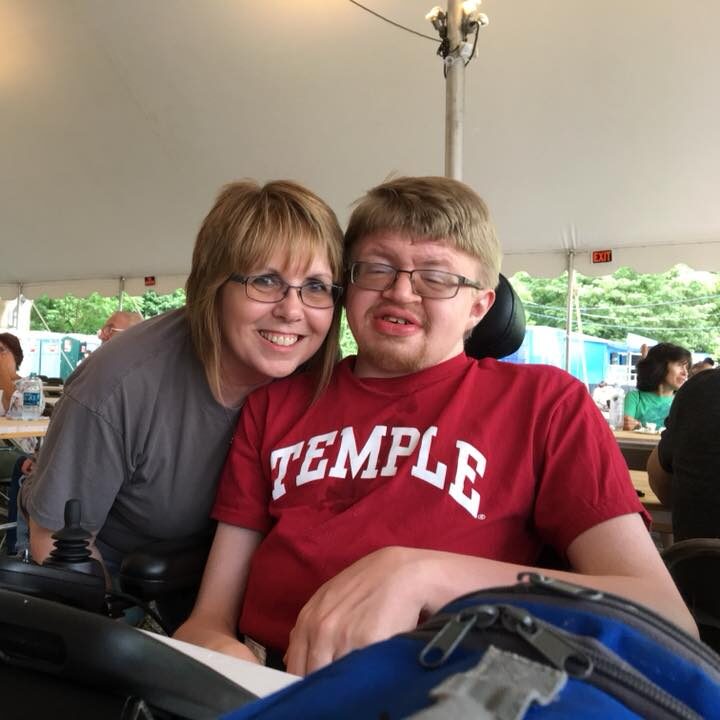
My son is not fraud or waste.
“My name is Shaun. I am 35 years old. I have support to go out in the community four days a week…I decide what I’m going to do and direct others to support me…Medicaid gives me life, but I need more support not less.”
Shaun’s words are simple, clear, and powerful. His autonomy, his ability to live a life of purpose, and his connection to his community are all made possible by one critical support system: Medicaid.
Shaun speaks not just for himself, but for thousands of individuals with disabilities across the country who rely on these vital services. His day-to-day life is rich and meaningful—he works at a law firm, volunteers at a local library and PBS, and finds joy helping at music festivals. Whether he’s at the gym, out shopping, enjoying a movie, or participating in community events, Shaun is not only present, he is known, valued, and included.
“Everywhere he goes out in the community, somebody knows him,” shares his mother, Colleen.
“He has this sense of independence, contribution, and a life that’s very worth living and has a great deal of meaning.”
But that life is fragile. Medicaid doesn’t just support what Shaun does, it supports who he is.
“If somehow Medicaid benefits are cut or eliminated, it would be very drastic to his life. It would…dash all our hopes of trying to plan for the future.”
Despite the support Shaun receives, he is on a waiting list for a waiver that would better meet his needs. The uncertainty of that wait is a constant worry. As Colleen explains, “We know what works. He has a quality of life. He can live in the community. He can go out, but there’s not a way to plan to continue that when we, his parents, are no longer able to do that.”
Another growing concern is the introduction of work requirements. Colleen fears that because Shaun has been able to work, thanks to the supports he has, that he will be expected to work more if work reporting requirements are put into effect. The fear is that bureaucracy and red tape may strip away the very supports that allow Shaun to contribute in the first place.
Colleen also worries about losing home and community-based services, sharing, “those are the things that provide him with the aide to go out and with home services so he can get personal care at home.”
Should those services disappear, families like Shaun’s may be forced to pick up the slack—if they can. And when they no longer can, the only fallback is institutional care. “The irony with that is that it’s more costly and it’s more detrimental to people’s overall quality of life.”
Institutionalization would mean the loss of everything Shaun has built—his autonomy, his community, and his voice.
“Without Medicaid, that life is a nightmare.”
Colleen appreciates that there could be improvements made to the Medicaid system, but rather than blanket cuts, she calls for genuine engagement: “I think that if they were truly interested in fixing Medicaid, we would be talking about and with people with disabilities and their families… to create that success and that quality of life.”
She adds, “My son is not fraud or waste.”
Add your voice to help us continue to push for the best health and health care for all.
SHARE YOUR STORY